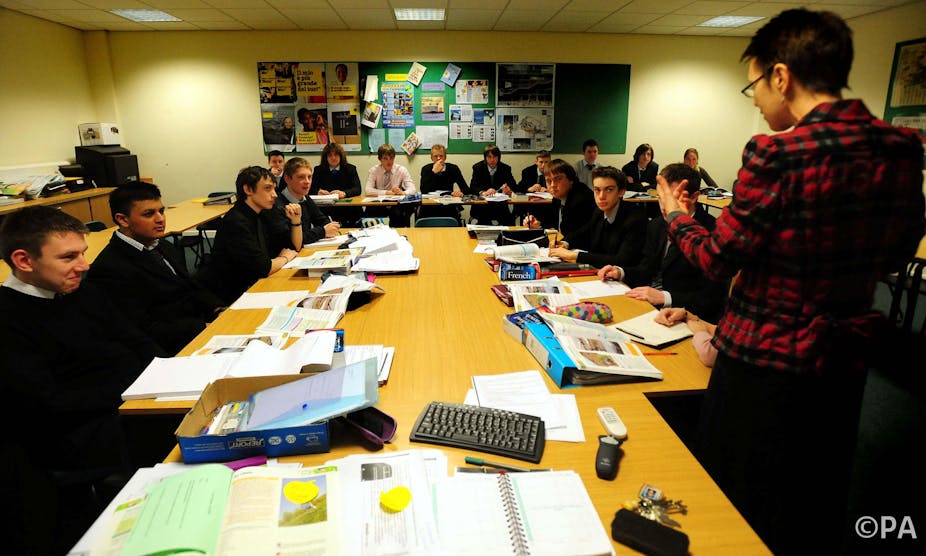In what Ofsted has hailed as some of the most radical changes to school inspection in England in its history, the schools regulator has published the results of a consultation into changes due to be introduced from September 2015. It is a pity that it has given no ground on its original proposals, but its current stance does at least represent a welcome cultural shift compared with previous policy – though not as great as some of us would wish.
Most disappointing is that Ofsted has decided not to routinely inspect those schools it judges to be outstanding. Outstanding schools stand to benefit from dialogue with skilled inspectors who can disseminate information and insights into “good” practice. They should be inspected not in order to prescribe authoritatively what improvement should look like, but so as to inform even these outstanding schools about other possibilities.
Inspectors need to routinely visit outstanding schools so they have the full range of experience on the basis of which to calibrate their judgements of all the schools they inspect. Ofsted’s response to questions raised in its consultation about this is short-sighted, concluding:
Any change of approach would require legislative change. As a result, we will continue not inspecting outstanding schools routinely, although we retain the powers to inspect if performance drops or other concerns are raised.
Sensible for the most part
The main thrust of the reforms is that Ofsted will be introducing frequent but shorter inspections – with schools judged good to be inspected approximately every three years, instead of every five or six years under the current system. This change seems sensible, proportionate and economical. Such visits should not be confined to dialogue with senior leaders and interrogation of data but should also involve visits to classes to get a feel of the school.
In a previous article I gave cautious welcome to Ofsted’s over-arching proposals for school inspection. Ofsted’s response to the consultation was as predictable as the questions it asked.
The first paragraph of the executive summary to the report contains two telling sentences. The first states: “The reforms we will introduce in September 2015 are intended to enable us to inspect the right things in the right way.” This assumes that there is one right way and that Ofsted embodies it – a hubristic and highly contentious proposition which will not endear the organisation to its many critics.

The second represents a welcome, surprising, honest but unsettling admission: “We will ensure that our inspections are of increasingly rigorous quality and value to the profession and the public, are more proportionate and have greater impact.” This implies that up until now inspections have not been sufficiently rigorous, proportionate or impactful – and this after almost a quarter of a century of Ofsted inspections.
Greater focus on the curriculum
Ofsted’s decision to report more on the curriculum is long overdue. The curriculum was not one of the focuses of inspection agreed with former education minister Michael Gove, despite being the medium through which understanding, skills and qualities are fostered. That blatant omission is now to be rectified. Ofsted will now “place a greater emphasis on the breadth and suitability of the curriculum and the type and range of courses and opportunities offered by providers.”
But questions remain over why the quality of the curriculum in its own right is not being inspected, rather than – as is now proposed – under the effectiveness of leadership and management judgement. It’s also still unclear to many what Ofsted means by contentious terms such as “British values”, “breadth”, “balance” and “relevance”.
Next step, implementation
The jury is still out on whether the planned return to a system where inspectors will be directly contracted with Ofsted instead of outsourced to private companies will bring about “the necessary quality, control and flexibility” in Ofsted’s workforce to deliver its proposed reforms.
Ofsted has agreed to introduce a new Common Inspection Framework. This is only “common” in the same weak sense as the national curriculum is “national” – the framework will not apply to the whole gamut of independent schools. The use of that framework is, however, a useful step if it means that inspectors can make graded and hopefully comparable judgements on the same areas for all but privileged independent schools. But devising such a framework will not be easy given the characteristics of different phases and of different types of school as well as schools’ inevitable idiosyncrasies.
It will be interesting to read how the proposed inspection handbooks, which will accompany the new common framework, deal with such issues and with the delineation of revised inspection criteria, some of which are suspect and even nonsensical as they currently stand.
Perhaps the most surprising fact about Ofsted’s consultation is that the school’s inspectorate has been prepared to rethink inspection in a changing educational climate. Ofsted does need to acknowledge the contestable nature of the inspection process. Despite the confident claim in the executive summary to its latest report, there is no one “right” way of inspecting schools, though experience since Ofsted’s inception in 1992 suggests there have been a number of wrong ones.

